Key Highlights
- Six Days in Fallujah Game is a realistic milsim FPS game that depicts the intense second battle of Fallujah between American Marines and the Iraqi insurgency.
- The game has a controversial history with its initial announcement in 2009 and subsequent cancellation, but it has been revived by developer Highwire Games and publisher Victura.
- The gameplay mechanics and features of Six Days in Fallujah focus on realistic combat situations, immersive audio effects, and intense fireteam cooperation.
- The graphics and audio immersion in the game create a visually stunning and immersive experience, with attention to detail in visual fidelity, environmental design, and soundtrack.
- The player experience and reception of Six Days in Fallujah have been mixed, with some praising the realism and intense gameplay, while others criticize its controversial setting and lack of content in the early access version.
Introduction
The intensity of war, the adrenaline rush of combat, and the camaraderie among soldiers are experiences that most of us can only imagine. However, with the advent of realistic military simulation games, players can now step into the shoes of soldiers and experience the intensity of the battlefield from the comfort of their own homes. One such game that offers an immersive and intense experience is Six Days in Fallujah Game.
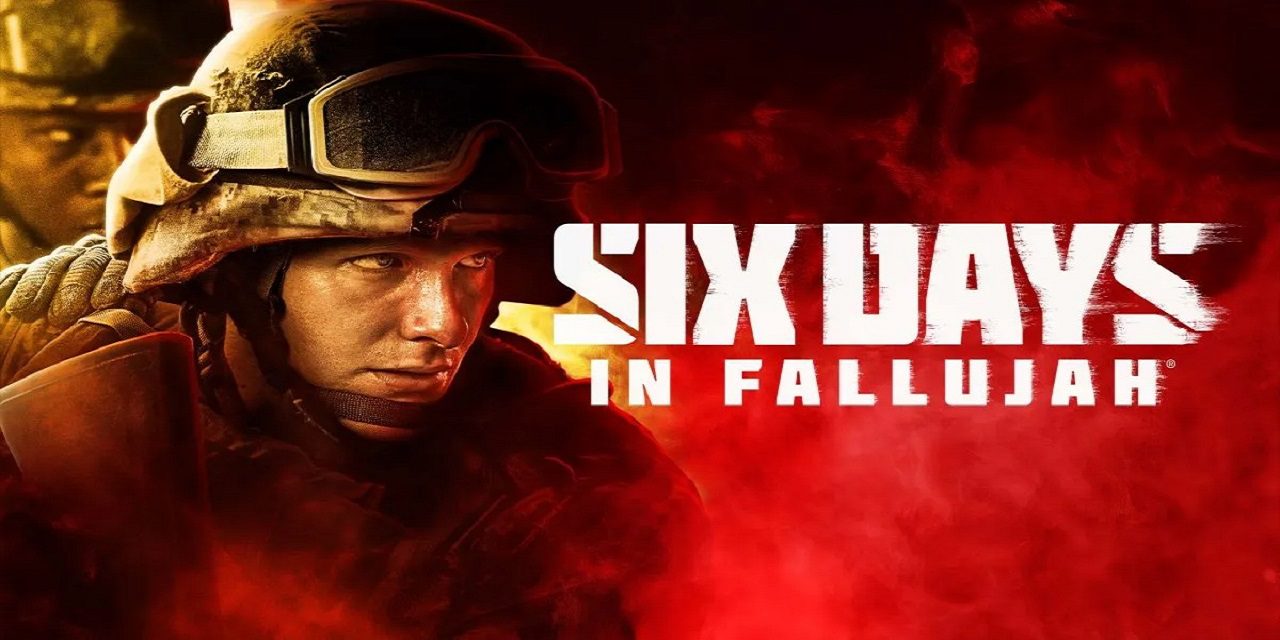

Overview of Six Days in Fallujah
Six Days in Fallujah is a milsim FPS game that is set during the second battle of Fallujah, a real and devastating battle that took place in November 2004. Developed by Highwire Games and published by Victura, the game aims to provide players with a realistic and immersive depiction of the battle. It takes place in the city of Fallujah and allows players to experience the intense combat situations faced by American Marines and the Iraqi insurgency.
Concept and Inspiration Behind the Game
The concept and inspiration behind Six Days in Fallujah Game stem from the desire to create a realistic portrayal of the second battle of Fallujah and to bring attention to the experiences of both American soldiers and Iraqi civilians during the conflict. The game’s developers have conducted extensive research and interviews with veterans and civilians who were involved in the battle. They aim to present a responsible interpretation of the events and shed light on the complexities and human stories behind the headlines.
Gameplay Mechanics and Features
Six Days in Fallujah offers gameplay mechanics and features that focus on realistic combat situations and intense fireteam cooperation. Players will have to navigate through procedurally generated maps, where every building could potentially hide insurgents. The game emphasizes the importance of planning, communication, and coordination among teammates to successfully complete missions. The immersive audio effects, detailed visual fidelity, and environmental design further enhance the player’s experience and make them feel like they’re truly in the middle of a warzone.
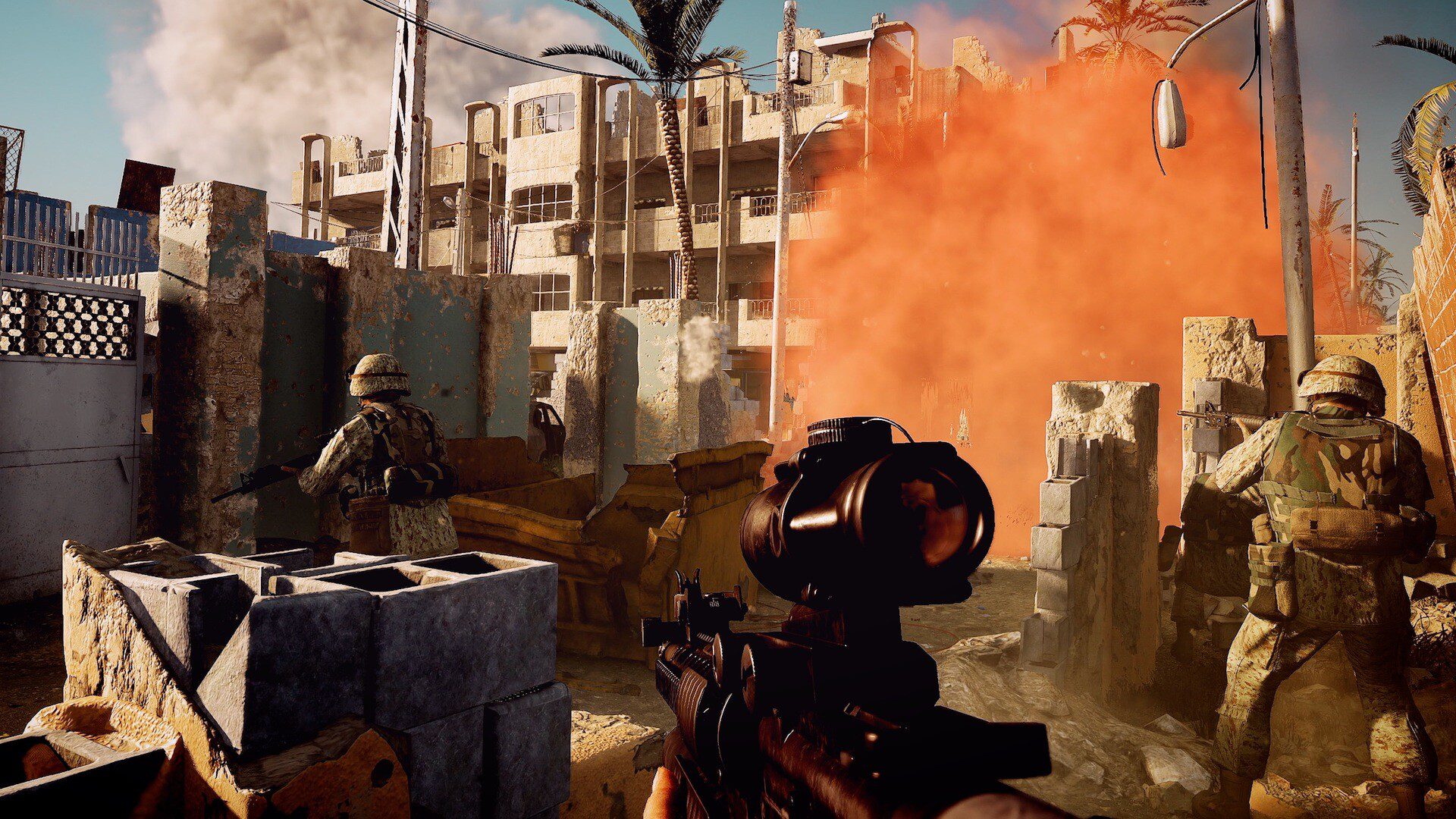

The Controversial History of Six Days in Fallujah Game
The history of Six Days in Fallujah Game is marked by controversy and setbacks. The game was initially announced in 2009 by Atomic Games, but it faced backlash and criticism for its depiction of a real and recent battle. This led to the cancellation of the project by publisher Konami. However, a decade later, the game was revived by developer Highwire Games and publisher Victura, with a renewed focus on responsible storytelling and a more accurate portrayal of the events.
Initial Announcement and Backlash
When Six Days in Fallujah was initially announced in 2009, it sparked controversy and backlash from various groups. Critics argued that turning a real and devastating battle into a video game trivialized the sacrifices and suffering of those involved. The game faced backlash from anti-war advocates, veterans, and even the Iraqi government. The controversy surrounding the initial announcement ultimately led to the cancellation of the project by publisher Konami.
Cancellation and Subsequent Revival
After the cancellation of Six Days in Fallujah Game, the project seemed to be shelved indefinitely. However, a decade later, Bungie veteran Peter Tamte, who was involved in the original project, decided to revive it under his own publishing label, Victura. He partnered with developer Highwire Games to bring the game back to life. The decision to revive the game was met with mixed reactions, with some applauding the dedication to responsible storytelling, while others remained skeptical of the game’s controversial subject matter.
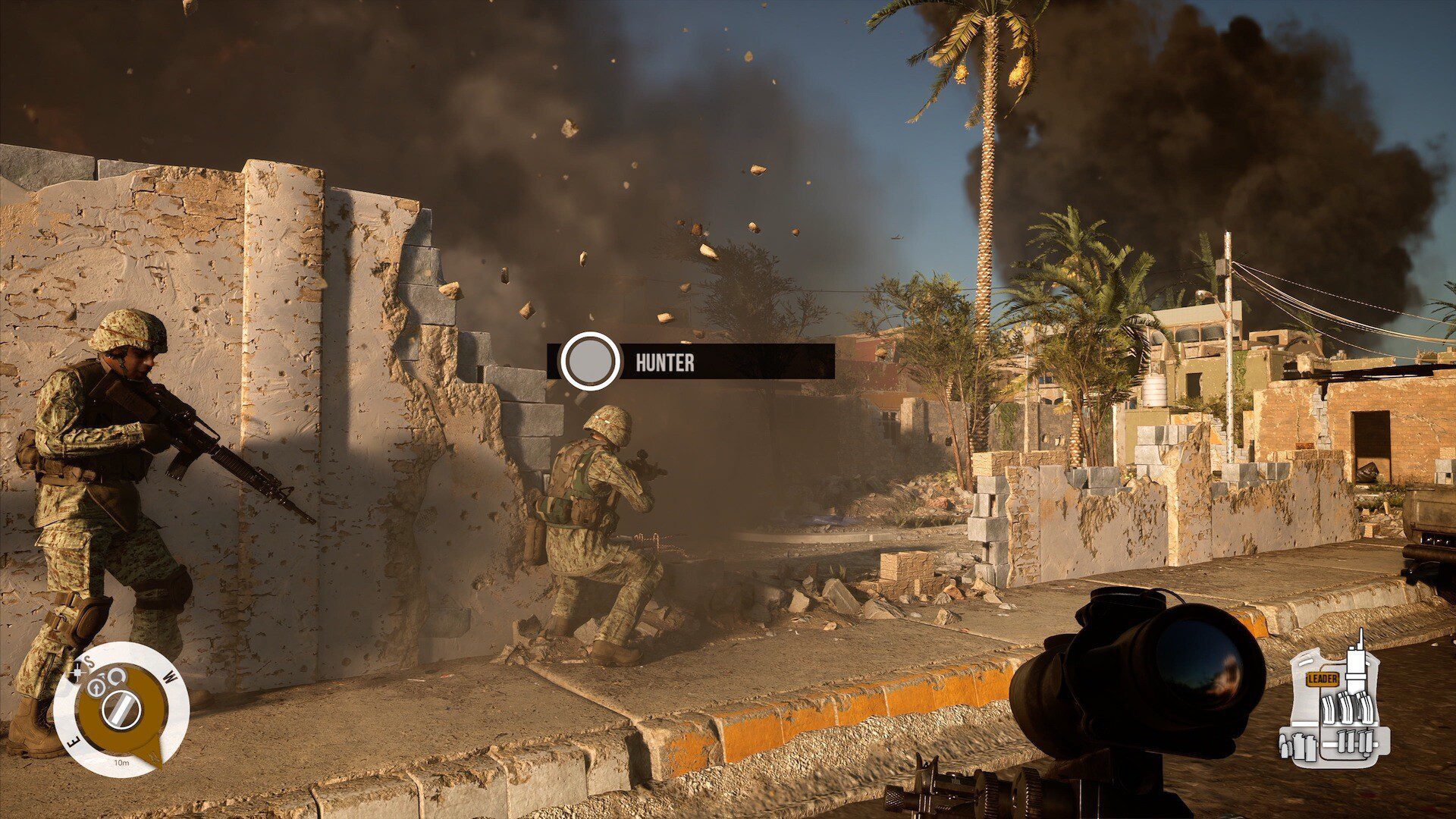

In-depth Analysis of Game Development
The development of Six Days in Fallujah has been a challenging journey, from the initial announcement to the cancellation and subsequent revival. The game has seen involvement from multiple developers, including Atomic Games and Highwire Games. The transition from one developer to another brought new perspectives and approaches to the game’s development. The focus has been on creating a realistic and immersive experience that accurately portrays the events of the second battle of Fallujah.
The Role of Atomic Games
Atomic Games played a significant role in the development of the original Six Days in Fallujah Game, bringing the concept and vision to life. However, the game faced controversy and backlash, leading to its cancellation. Despite the setbacks, Atomic Games laid the foundation for the game and sparked conversations about the depiction of real-world conflicts in video games. The cancellation of the project opened the door for a new iteration of the game with a renewed focus on responsible storytelling.
Transition to Victura and Highwire Games
Following the cancellation of Six Days in Fallujah, the project was revived by Victura and Highwire Games. Bungie veteran Peter Tamte, who was involved in the original project, took the reins and partnered with Highwire Games to bring the game back to life. The transition to Victura and Highwire Games brought new perspectives and expertise to the development process. The collaboration between the two studios has resulted in a renewed focus on responsible storytelling and an accurate portrayal of the events of the second battle of Fallujah.
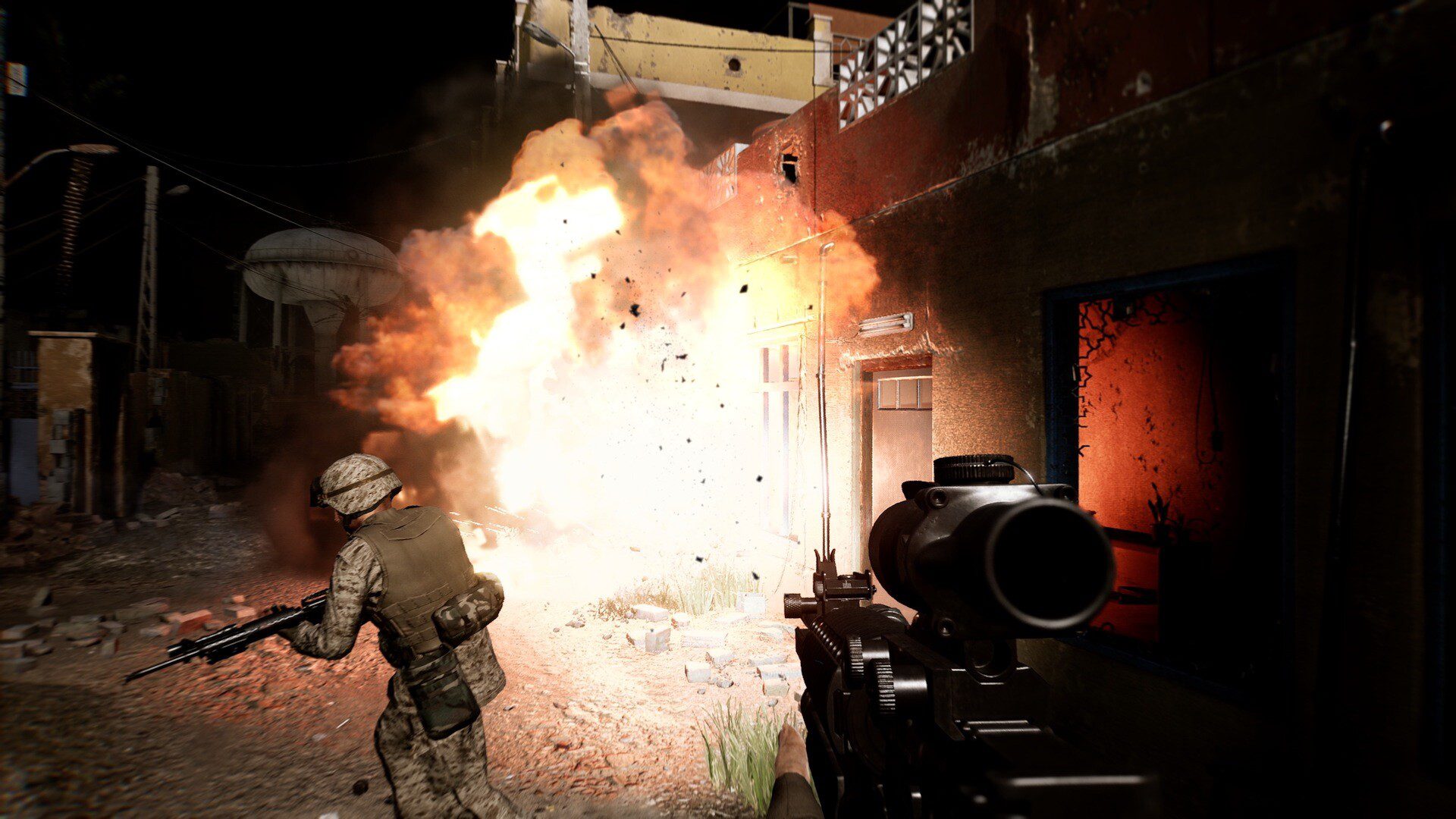

Graphic and Audio Immersion
One of the standout features of Six Days in Fallujah is its graphic and audio immersion. The game’s visual fidelity and environmental design create a stunning and realistic depiction of the war-torn city of Fallujah. Players will feel immersed in the intense and chaotic atmosphere of the battlefield. The audio effects further enhance the immersion, with realistic sound design and a dynamic soundtrack that heightens the tension and intensity of the gameplay.
Visual Fidelity and Environmental Design
Six Days in Fallujah Game boasts impressive visual fidelity and detailed environmental design. The developers have meticulously recreated the war-torn city of Fallujah, with attention to detail in the architecture, rubble, and other environmental elements. The graphical fidelity of the game brings the city to life, making players feel like they are truly in the midst of a battle. The attention to detail in the environmental design adds to the realism and immersion of the gameplay experience.
Soundtrack and Audio Effects
The soundtrack and audio effects in Six Days in Fallujah play a crucial role in immersing players in the intense and chaotic atmosphere of the battlefield. The game features a dynamic soundtrack that adapts to the player’s actions and the unfolding events of the gameplay. The audio effects, such as gunfire, explosions, and ambient sounds, add to the realism and intensity of the gameplay experience. The attention to detail in the sound design ensures that players are fully immersed in the world of Six Days in Fallujah.
Player Experience and Reception
The player experience and reception of Six Days in Fallujah Game have been mixed. Some players have praised the game for its realistic and intense gameplay, as well as its immersive graphics and audio. The attention to detail in the portrayal of the second battle of Fallujah has been commended by those who appreciate the historical accuracy. However, the controversial subject matter and the limited content in the early access version have also been points of criticism.
Critical Acclaim vs. Player Feedback
Six Days in Fallujah has received mixed critical acclaim and player feedback. While some critics appreciate the game’s dedication to realism and historical accuracy, others argue that it falls short in delivering an immersive experience. The game’s early access release, which focuses on co-op missions, has received praise for its intense gameplay and realistic combat mechanics. However, players have expressed disappointment over the lack of a singleplayer campaign and limited content. The procedural generation of maps and repetitive nature of missions have also been criticized for lacking variety. Despite these criticisms, Six Days in Fallujah has sparked discussions about the potential of video games to provide a unique perspective on real-world events and the challenges of depicting war realistically.
Realism and Historical Accuracy
Six Days in Fallujah Game aims to provide players with a realistic and historically accurate depiction of the second battle of Fallujah. The game’s developers have worked closely with veterans and interviewed Iraqi civilians to ensure an authentic portrayal of the conflict. The gameplay mechanics, such as slow movement, limited ammunition, and the need for tactical coordination, contribute to the game’s sense of realism. Additionally, the inclusion of documentary segments between missions adds a layer of historical context and perspective. However, some critics argue that the game’s focus on American valor and the omission of Iraqi civilian perspectives undermine its claims of historical accuracy. The upcoming addition of civilians in an update is expected to address this concern and further enhance the game’s realism.
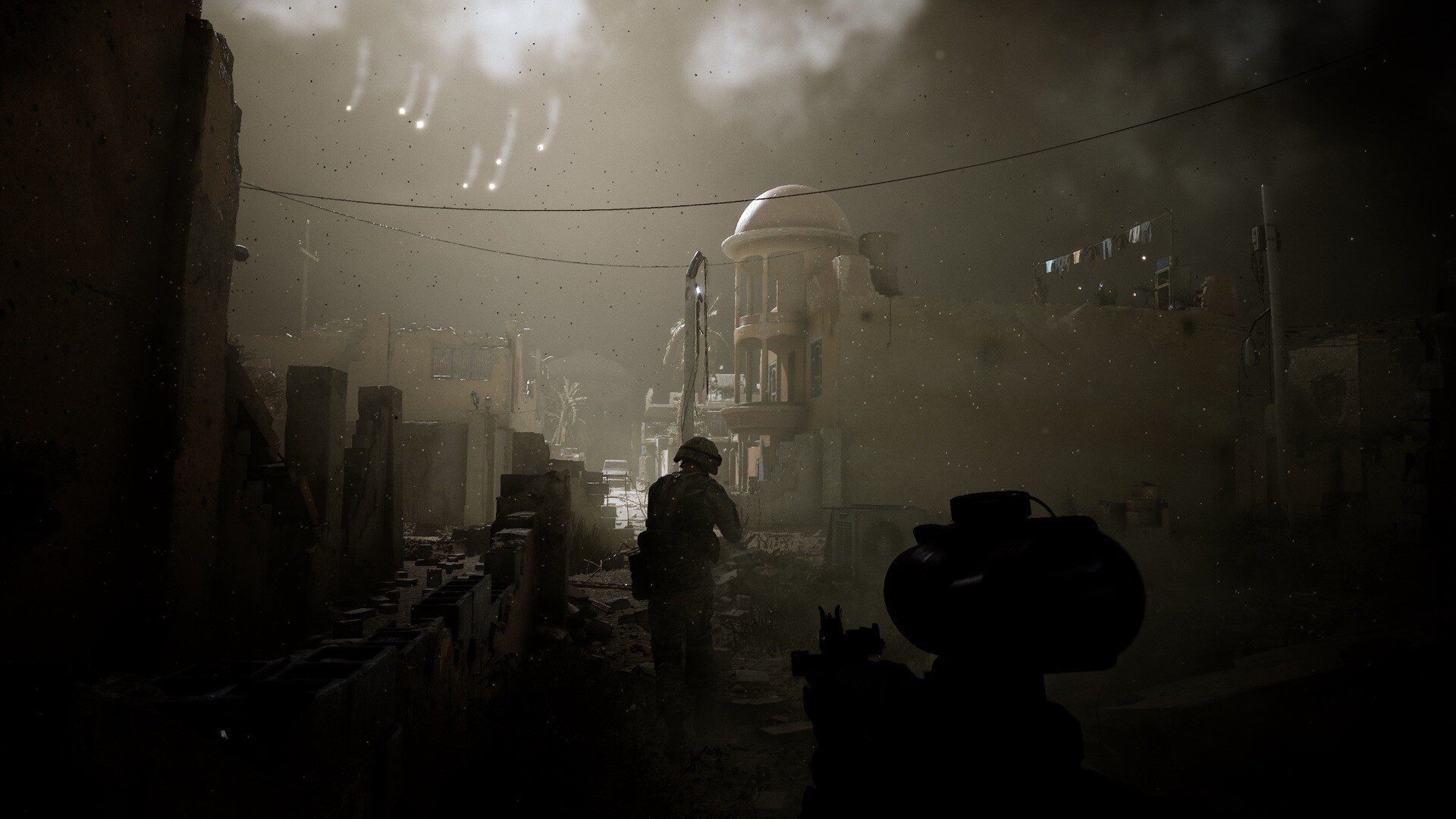

Ethical Considerations and Controversy
Six Days in Fallujah has faced controversy surrounding the ethical considerations of creating a video game based on real-life events and a devastating battle. Critics argue that war games can trivialize the experiences of those involved and exploit sensitive subject matter for entertainment. The game’s developers have defended their approach, stating that their intention is to provide a realistic and educational experience rather than glorify violence. However, the debate around the portrayal of war in video games continues, highlighting the need for sensitivity and responsible storytelling in the medium.
The Debate Around War Games
The debate around war games is complex and multi-faceted. On one hand, proponents argue that these games provide a unique opportunity for players to explore historical events, gain empathy for those involved, and learn about the complexities of war. They believe that video games can be an effective medium for storytelling and education. On the other hand, critics raise concerns about the potential for desensitization to violence, the glorification of war, and the ethical implications of turning real-life tragedies into entertainment. Finding a balance between providing an engaging experience and respecting the gravity of historical events is crucial for developers of war games like Six Days in Fallujah.
Developer’s Response to Criticism
The developers of Six Days in Fallujah have responded to the criticism surrounding the game’s ethical considerations. They emphasize their commitment to accuracy, authenticity, and providing a platform for understanding real-world events. The inclusion of documentary segments and perspectives from Iraqi civilians is seen as their effort to address concerns and present a more nuanced portrayal of the conflict. The developers acknowledge the challenges of balancing entertainment with the gravity of war and strive to create an experience that is respectful and thought-provoking. They believe that video games have the potential to offer unique insights into historical events, but also recognize the responsibility to handle sensitive subject matter with care.
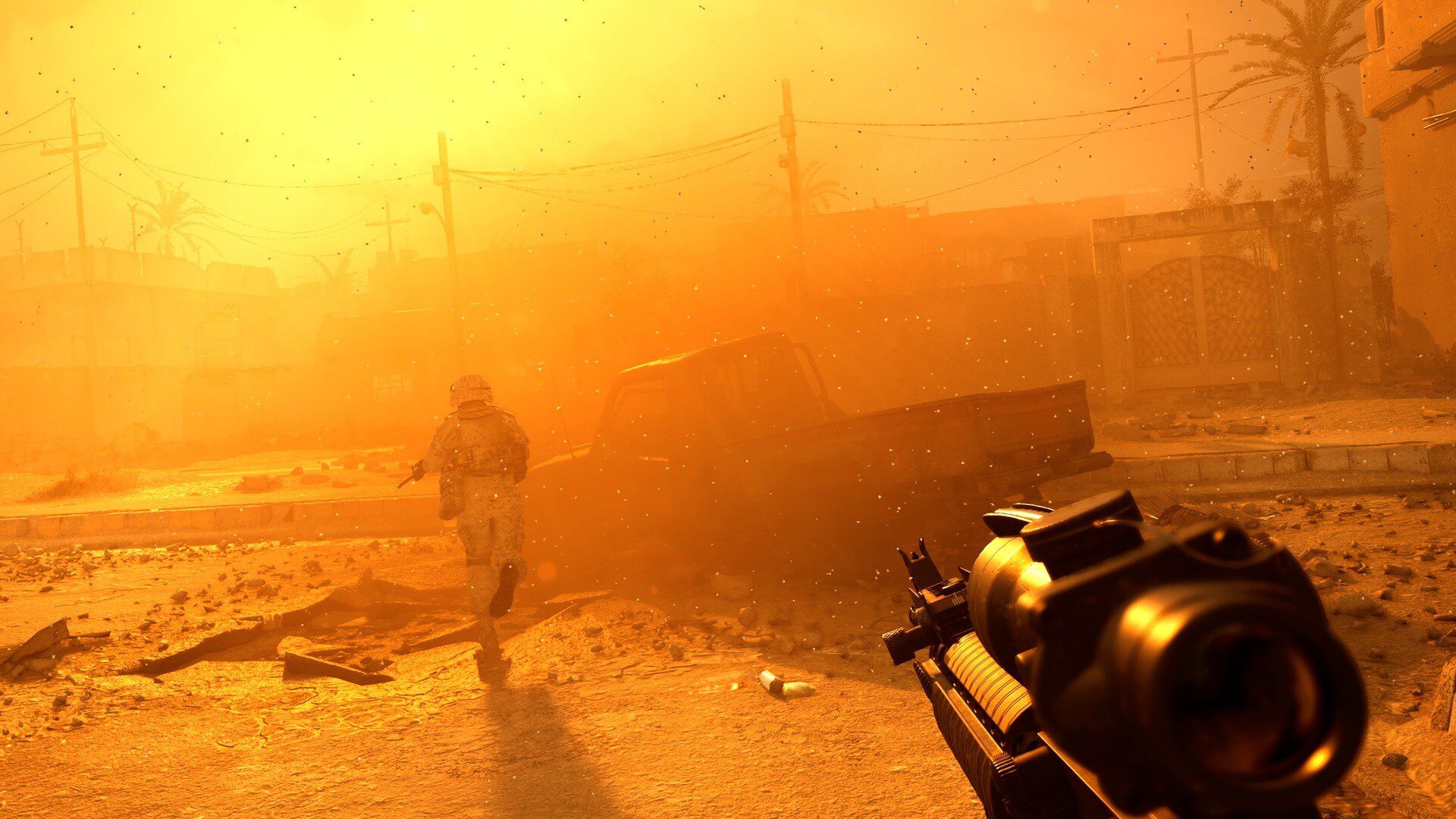

Conclusion
After exploring the journey of “Six Days in Fallujah Game,” it’s evident that it has sparked intense debates and discussions within the gaming community. Its historical context intertwined with modern-day gaming technology sets a unique stage for players. The ethical dilemmas portrayed within the gameplay force gamers to confront the harsh realities of war in a virtual setting. As the game continues to evolve, it will be intriguing to witness how it navigates the turbulent waters of realism and historical accuracy amidst the gaming landscape.
Frequently Asked Questions
Is Six Days in Fallujah based on real events?
Six Days in Fallujah is based on real events, aiming to recreate the intense six-day battle in Iraq. The game focuses on realism and authenticity, drawing inspiration from actual experiences of soldiers who fought in Fallujah.
What platforms is the game available on?
Six Days in Fallujah is available on major gaming platforms such as PlayStation, Xbox, and PC. Players can experience the intense gameplay across different devices, ensuring a wide accessibility for all gaming enthusiasts.
How does the game address the complexities of war?
By delving into realistic scenarios, moral dilemmas, and human emotions, the game navigates the intricate layers of war’s complexity. Through immersive storytelling and gameplay mechanics, it offers a nuanced perspective on the challenging realities of armed conflict.
